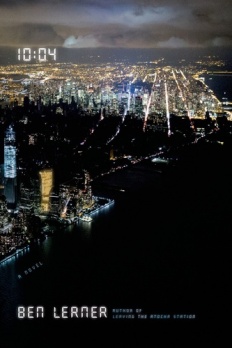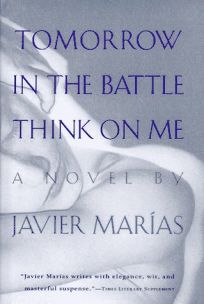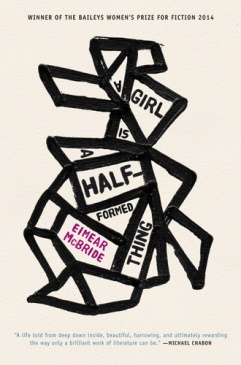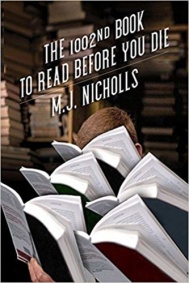
I could say that Nicholls’ novel is the brand new level of postmodern, self-reflexive metafiction, but I think I’ve written similar things about other books before (even though there’s always an even more brand new level, and my vocabulary is limited), and anyway, the words postmodern, self-reflexive, and metafiction sometimes make me want to puke, and I don’t feel like using them yet again.
Isn’t it possible to just write a story sometimes – a story which is not about itself, but about something that exists out there in the world or even inside our minds?
According to Nicholls, no, this isn’t possible – so we have everything necessary here for a wonderful meta-masturbating novel, in which a smart-ass master of literary studies whines about the difficulties of writing and reading, and about the fact that literature is dead.
However, there’s one thing which saves this novel (and even makes it really entertaining): it’s clear that the words postmodern, self-reflexive, and metafiction also make Nicholls puke – therefore he manages to approach the topics above in a delightfully cynical way.
The novel consists of two distinct storylines. The first one is the story itself, in which a guy called Marcus decides to move to a small island at the end of world to devote his next three years to reading all 1001 books a person must read before he dies. According to Marcus’ theory, after reading all 1001 books, he’ll finally be rid of the compulsion to read all the time and will be ready to live a normal life. However, he soon meets the decidedly quirky inhabitants of the island (for example, Isobel, the eccentric librarian, who speaks in a fancifully Baroque way, and who’s looking for a guy who’s constantly reading; or Raine Upright, the self-appointed critic and devoted enemy of the literary canon, who produced such masterpieces of literary interpretation as, for example, 100 Novels That Should Be Fisted to Death); and thanks to his new acquaintances and other arising troubles, Marcus’ reading project doesn’t go as planned.
The other storyline is about a writer who applies to a literary contest which will reward the work of a young writer who would become the new voice of the Scottish Highlands. Based on the inspiring, heartwarming, and widely accessible synopsis and first chapter he submits, the young writer wins the prize – but he has no desire whatsoever to complete the novel. Instead, he goes on to write the novel from the first storyline – a novel with no discernible plot, with no real characters, with no inspiring or heartwarming qualities – a novel unable to address a single person in the world.
Both storylines are rich in literary asides and snide remarks (some of them I understand, some I don’t; and sometimes I agree with the overt or implied criticism, and sometimes I don’t) – so for the proper enjoyment of the novel, it might be best if you’d already completed your list of 1001 books.
And I enjoyed all this for a long while, but at one point, I completely lost interest. It happened when one day I slipped on a bunch of wet leaves during rollerblading and made a bloody mess of my knees. Consequently, I spent the whole evening wondering whether I have tiny little pebbles in my knees now, and whether I’ll need to have my legs amputated if I don’t go to the doctor, just use regular home remedies – and I couldn’t care about this book anymore.
I only mention this because to me it illustrates that literature (and especially: mental masturbation about literature) can be interesting but it often ceases to be interesting the moment something real happens – for example, if there’s a chance that there are real tiny little pebbles in a real knee.
Anyway, it’s not a bad book at all, but I realized by the end that I most probably won’t ever get to the end of the 1001 novels I must read before I die. I mark the ones I had read in a special list, though – just in case.

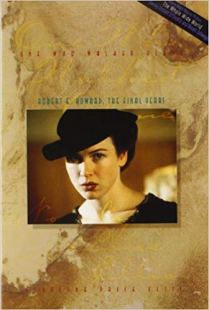
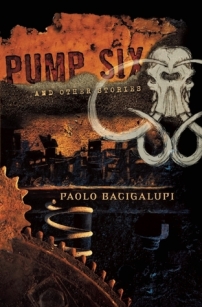
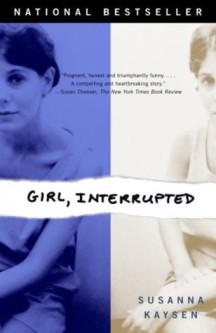 I liked this book with my mind because it’s written well and vividly, but it didn’t touch my feelings. All right: perhaps it touched them, but not too deeply. I think the reason for this is that I found Girl, Interrupted too fast and episodic (or I found myself too fast in my relation to this book, which is the same).
I liked this book with my mind because it’s written well and vividly, but it didn’t touch my feelings. All right: perhaps it touched them, but not too deeply. I think the reason for this is that I found Girl, Interrupted too fast and episodic (or I found myself too fast in my relation to this book, which is the same).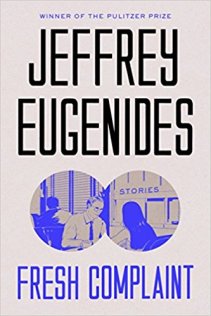 I once wrote about one of Eugenides’ novels that he’s so good that I’d happily read even his shopping lists. It’s possible I’ll still feel this way about his novels (but there’ll probably be a ten-year gap between two novels again, so I’m not holding my breath), but based on just these short stories, I’m quite content without having access to Eugenides’ shopping list.
I once wrote about one of Eugenides’ novels that he’s so good that I’d happily read even his shopping lists. It’s possible I’ll still feel this way about his novels (but there’ll probably be a ten-year gap between two novels again, so I’m not holding my breath), but based on just these short stories, I’m quite content without having access to Eugenides’ shopping list.